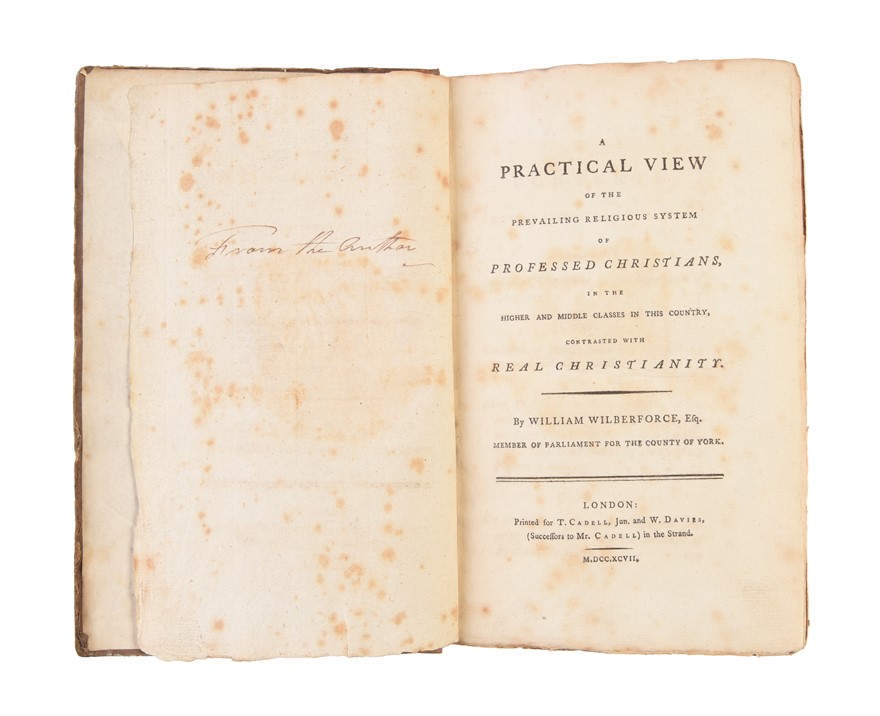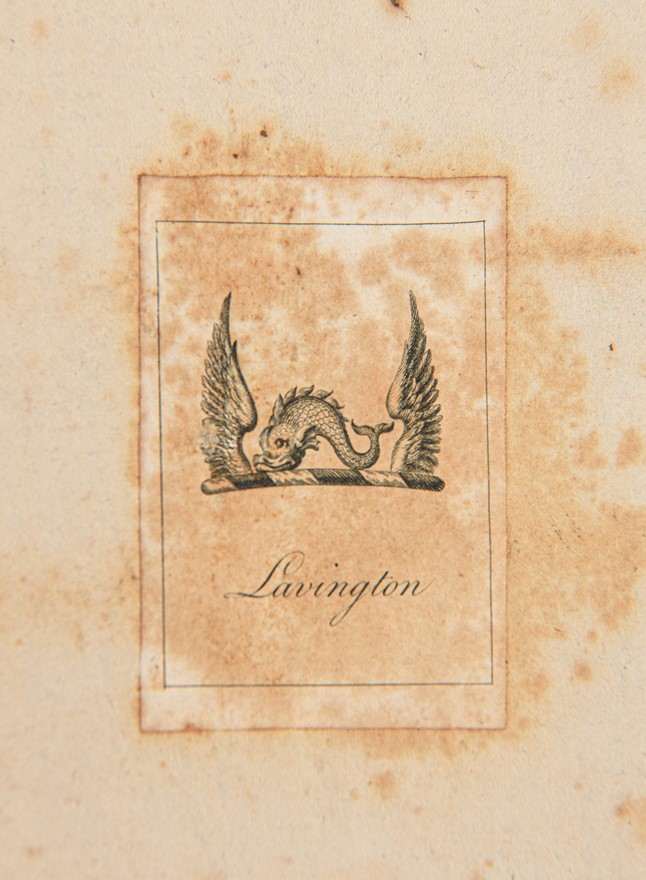A Practical View of the Prevailing Religious System of Professed Christians, in the Higher and Middle Classes in this Country, Contrasted with Real Christianity.
WILBERFORCE William (1797)
£4500.00 [First Edition]
Available to view at our Curzon Street shop.
A PRESENTATION COPY FROM THE WILBERFORCE LIBRARY AT LAVINGTON
First edition. [4], 491, [35] pp. With the often lacking errata leaf and 16 page catalogue of "The following valuable books are printed for T. Cadell, Jun. and W. Davies (successors to Mr. Cadell) in the Strand, 1796." Title-page and front free endpaper lightly foxed, some additional occasional light foxing throughout, but otherwise a very good, fresh copy uncut in quarter cloth over the original boards. London: for T. Cadell, Jun. and W. Davies,
This is the first of five London editions that appeared in 1797. An additional edition appeared in Dublin in the same year. The work appeared in 18 English editions before 1830 and was translated into French and Spanish in the same period which testifyies to the enduring popularity of the work.
A remarkable presentation copy of "Wilberforce's own personal testimony" (ODNB) from the family library at Lavington, Sussex. The immediately successful work is an important exposition of the principles driving evangelical Christians many of whom, like Wilberforce, worked tirelessly for abolition.
In the Practical view,"Wilberforce expounded his interpretation of New Testament teachings as a basis for a critique of the lukewarm and inadequate practice of Christianity he observed around him. He called for religious revival as an essential means of reversing national moral decline. Despite its unfashionable theme and diffuse and discursive style, the book was extensively read and very influential ... It was both a 'the manifesto of the evangelical party of the time' and Wilberforce's own personal testimony, which provided a powerful rationalization of his philanthropic and political exertions over the preceding decade ... One of the key reasons for the success of the Practical view was that it's call for national spiritual and moral renewal could be read in broad Anglican as well as specific evangelical terms" (ODNB).
Provenance: 1. William Wilberforce (1759-1833), presentation inscription to the front free endpaper "From the author". 2. Lavington House, Sussex, bookplate to front pastedown. Samuel Wilberforce (1805-1873), bishop of Oxford and Winchester, and son of William Wilberforce (1759-1833), inherited the Lavington estate from the family of his wife Emily (Sargent).
Stock Code: 221410





